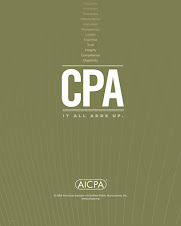It's not the 1
percent that is siphoning U.S. economic resources. It is the 25 percent--the
portion of the U.S. population born between 1946 and 1964 or, baby boomers like
me. Not only are we 25 percenters leaving the workforce at very high rates,
(consuming instead of producing), we are draining the U.S. Treasury via higher
Social Security (SS) benefits and greater Medicare spending. Over the past
decade, SS outlays soared by 69 percent and Medicare expenditures rocketed by
135 percent, enlarging the nation's debt to $16 trillion. This debt which is
the largest in the galaxy and 100 percent of GDP will ultimately be paid for by
the 60 percenters (those born after 1964). We need to take steps to reduce this
wealth transfer from young to old by: (1) raising the SS retirement age from 67
to 70 by increasing it 2 months per year, (2) increasing the Medicare
eligibility age from 65 to 67 and, (3) cut the yearly SS inflation adjustment
by 1 percent. Taking these actions would save $360-$400 billion between 2012
and 2021. Additionally to reverse the aging of the nation’s labor market, the
U.S. should expand legal immigration allowing younger workers and their
families to enter the U.S. Latest U.S. Census data show the median age is 38.3
for Whites, 35.3 for Asians and 27.4 for Hispanics. By increasing legal
immigration and slowing the growth in SS and Medicare spending, the U.S. would
avoid the stagnation and looming economic calamities threatening Japan and
Europe as a result of their aging populations and expanding pensions/healthcare
payments to baby boomers. Ernie Goss.
I found his comments on a “fix” to the deficit that the Social Security
fund very interesting. Last fall I attended the National Tax Conference
in Washington D.C. One of the sessions was on Social Security and
Medicare, the speaker, Theodore Sarenski echoed some of the advise that Dr. Goss
presented. If this happened, according to Sarenski, no person over 55
would be see their benefits change and people under 55 would still receive at
least 85% of their benefits.



No comments:
Post a Comment